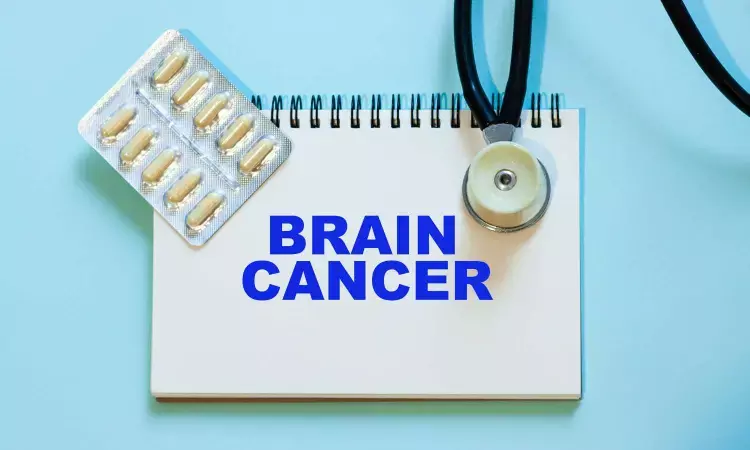- Home
- Medical news & Guidelines
- Anesthesiology
- Cardiology and CTVS
- Critical Care
- Dentistry
- Dermatology
- Diabetes and Endocrinology
- ENT
- Gastroenterology
- Medicine
- Nephrology
- Neurology
- Obstretics-Gynaecology
- Oncology
- Ophthalmology
- Orthopaedics
- Pediatrics-Neonatology
- Psychiatry
- Pulmonology
- Radiology
- Surgery
- Urology
- Laboratory Medicine
- Diet
- Nursing
- Paramedical
- Physiotherapy
- Health news
- Fact Check
- Bone Health Fact Check
- Brain Health Fact Check
- Cancer Related Fact Check
- Child Care Fact Check
- Dental and oral health fact check
- Diabetes and metabolic health fact check
- Diet and Nutrition Fact Check
- Eye and ENT Care Fact Check
- Fitness fact check
- Gut health fact check
- Heart health fact check
- Kidney health fact check
- Medical education fact check
- Men's health fact check
- Respiratory fact check
- Skin and hair care fact check
- Vaccine and Immunization fact check
- Women's health fact check
- AYUSH
- State News
- Andaman and Nicobar Islands
- Andhra Pradesh
- Arunachal Pradesh
- Assam
- Bihar
- Chandigarh
- Chattisgarh
- Dadra and Nagar Haveli
- Daman and Diu
- Delhi
- Goa
- Gujarat
- Haryana
- Himachal Pradesh
- Jammu & Kashmir
- Jharkhand
- Karnataka
- Kerala
- Ladakh
- Lakshadweep
- Madhya Pradesh
- Maharashtra
- Manipur
- Meghalaya
- Mizoram
- Nagaland
- Odisha
- Puducherry
- Punjab
- Rajasthan
- Sikkim
- Tamil Nadu
- Telangana
- Tripura
- Uttar Pradesh
- Uttrakhand
- West Bengal
- Medical Education
- Industry
Anti-anxiety drug promising for improving survival in patients with most lethal brain cancer: Study

Australia: A recent study showed that chemoradiation efficacy reduces in human cerebrospinal fluid (CSF) and suggests that a combination of trifluoperazine and standard care may improve the survival of patients with glioblastoma (GBM).
The study was done by Australian researchers led by Associate Professor Cedric Bardy at the South Australia Health and Medical Research Institute (SAHMRI) and Flinders University
Reporting how this occurs, the study in the high-profile journal Science Advances shows that a decades-old anti-anxiety drug can improve the effectiveness of chemo-radiotherapy towards glioblastoma, or GBM, the most common and lethal brain cancer.
Brain cancers kill more children and adults under 40 than any other cancer. They are resistant to therapies that kill cancers elsewhere in the body. The study team speculates that unique brain features might contribute to this.
The collaborative Australian team of neurobiologists, neurosurgeons and oncologists tested the effect of the precious resource of human cerebrospinal fluid on the growth of tumour cells collected from 25 local patients with glioblastoma.
Among their findings, the tumour cells quickly changed their identity and became more resistant to radiation and the drug temozolomide, which are mainstays of glioblastoma therapy.
Associate Professor Cedric Bardy says, “Glioblastoma kills so many people who are otherwise fit, healthy and young, within months. This is a horrible disease, and the treatments available are just not effective enough despite serious side effects.
“This study helps us understand the limitations of the current chemotherapies and provides new hope for repurposing a class of drugs that could be added to the standard of care. We are working hard now to try this on patients in a clinical trial.”
Investigating the molecular basis for these changes, the team found glioblastoma cells exposed to cerebrospinal fluid were more resistant to ferroptosis, a form of therapy-induced cell death.
Importantly, they showed that trifluoperazine, an anti-anxiety drug used since the 1950s, could re-sensitise glioblastoma cells to both therapies. In contrast, trifluoperazine was found not to harm healthy brain cells. The researchers concluded that combining trifluoperazine with standard care may improve GBM patient survival.
Reference:
Brett W. Stringer et al. ,Human cerebrospinal fluid affects chemoradiotherapy sensitivities in tumor cells from patients with glioblastoma.Sci. Adv.9,eadf1332(2023).DOI:10.1126/sciadv.adf1332.
Dr Kamal Kant Kohli-MBBS, DTCD- a chest specialist with more than 30 years of practice and a flair for writing clinical articles, Dr Kamal Kant Kohli joined Medical Dialogues as a Chief Editor of Medical News. Besides writing articles, as an editor, he proofreads and verifies all the medical content published on Medical Dialogues including those coming from journals, studies,medical conferences,guidelines etc. Email: drkohli@medicaldialogues.in. Contact no. 011-43720751


